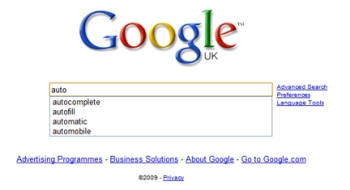Google loses autocomplete defamation case in Italy

Google has lost a case in Italy over the defamatory nature of autocomplete suggestions, according to a lawyer for the complainant.

Google has lost a case in Italy over the defamatory nature of autocomplete suggestions. Credit: Google
On Tuesday, lead counsel Carlo Piana wrote on his blog that the Court of Milan has upheld its earlier decision to order Google to filter out libellous search suggestions. These are the suggestions that pop up in Google's search input bar, proposing what the user might be wanting to search for.
People searching via Google for Piana's client, who remains publicly unnamed, were apparently presented with autocomplete suggestions including truffatore ("con man") and truffa ("fraud").
The order (PDF, in Italian) is dated 31 March, although Piana only made its contents public on Tuesday. Google lost its bid to claim the protection of the E-Commerce Directive's safe harbour provisions, which partly shields hosting and ISPs from liability for content held on or transmitted over their systems. However, the court viewed the autocomplete suggestions as being produced by Google itself.
Content filter
"Google argued that it could not be held liable because it is a hosting provider, but we showed that this is content produced by them (and by the way, they do filter out certain content, including terms that are known to be used to distribute copyright-infringing material), although through automated means," Piana wrote.
The lawyer said the suit is "by no means an endorsement to censorship", as the allegations had been fully discussed with Google before the court action was even considered and only two phrases were put forward to be filtered out of autocomplete.
"All cases are different, therefore there is no assurance that similar cases would see the same outcome," Piana said. He added that this case had "caused a lot of trouble to the client, who has a public image both as an entrepreneur and provider of educational services in the field of personal finance".
In a statement on Tuesday, Google said it was "disappointed" by the Court of Milan's decision.
"We believe that Google should not be held liable for terms that appear in autocomplete as these are predicted by computer algorithms based on searches from previous users, not by Google itself," the company said. "We are currently reviewing our options."
This is not the first time Google has fallen foul of Italy's authorities. In February 2010, three Google executives were convicted in absentia over a video uploaded to the site, in which an autistic child was shown being bullied. In January this year, Italian authorities also forced Google to make concessions regarding Google News and AdSense, in order to close an antitrust investigation in the country.
Get the latest technology news and analysis, blogs and reviews delivered directly to your inbox with ZDNet UK's newsletters.